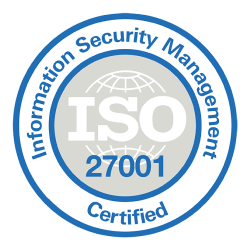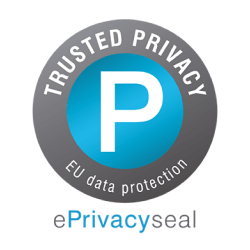Anti-Corruption Policy
Insider SG PTE Ltd and each of its subsidiaries (the “Company“) require its subsidiaries or affiliates or any of its or their directors, officers, managers, employees, independent contractors, representatives or agents and each other person acting for, or on behalf of, the Company (“Supervised Persons“) to maintain the highest standards of ethical business conduct. Supervised Persons are expected to act professionally, fairly and with integrity when acting on behalf of Company. Among other things, this means that Supervised Persons must engage in honest competition and observe the Company’s Anti-Corruption Policy (the “Policy“), which strictly prohibits all forms of bribery and corruption in both the public and private sector especially in the light of the Anti-Corruption Laws (as defined below). In particular, the Policy:
- Prohibits Supervised Persons from directly or indirectly offering or giving anything of value to any person or entity designed to improperly obtain a benefit for the Company or improperly influence the conduct of the recipient;
- Prohibits Supervised Persons from directly or indirectly requesting or receiving anything of value from any person or entity doing or seeking to do business with the Company designed to improperly influence the conduct of the Company or any of its Supervised Persons; and
- Requires Supervised Persons to strictly observe all Anti-Corruption Laws and regulations that may apply to the Company.
This Policy, which may be updated periodically, serves as a reference guide to help you make decisions that are consistent with applicable anti-corruption laws as well as identify potential compliance issues so that you may seek advice before taking a particular action or report within the Company a potential violation. The Policy is organized into three sections as follows:
Part I – Overview of Global Anti-Corruption Laws
Part II – Policy Guidelines
Part III – Obligations of Supervised Persons; Questions
Part IV – Record Keeping and Internal Controls
I. OVERVIEW OF GLOBAL ANTI-CORRUPTION LAWS
The Company is implementing a global anti-corruption policy to ensure compliance with certain anti-corruption laws and regulations, including the United States Foreign Corrupt Practices Act (“FCPA“) and the United Kingdom Bribery Act (“UKBA“), Prevention of Corruption Act (Cap 241) of Singapore, Corruption, Drug Trafficking and other Serious Crimes (Confiscation of Benefits) Act (Cap. 65A) of Singapore, Mutual Assistance in Criminal Matters (Cap. 190A) of Singapore, the Prevention of Corruption Act, 1988 of India, Turkish Anti-Corruption Laws or any other applicable anti-bribery or anti-corruption law (“Anti-Corruption Laws”).
While a summary of the FCPA, UKBA and Turkish Anti-Corruption Laws is provided below, this summary does not cover every aspect of those or other potentially applicable laws or regulations. Many countries, for example, have enacted their own anti-corruption laws and thus it is increasingly important to ensure that, in adhering to the Policy, you are familiar with the laws and regulations that apply to your area of responsibility.
A. Foreign Corrupt Practices Act
In 1977, the United States Congress enacted the FCPA. The statute contains two major types of provisions: the anti-bribery provisions and the accounting or books and records provisions. The anti-bribery provisions, which can apply to United States and some foreign companies as well as their employees and agents, prohibit giving or offering to give anything of value to a “foreign official” (i.e., a non-U.S. official), directly or indirectly, to corruptly retain business, secure future business, or obtain a commercial benefit. The accounting provisions of the FCPA serve to prevent payments prohibited under the FCPA’s anti-bribery provisions by requiring companies registered on a United States securities exchange to take reasonable steps to protect against off-book accounts and disbursements and other unauthorized payments by implementing adequate controls and keeping accurate books and records.
The FCPA’s anti-bribery provisions are broadly written. They define improper payments as “anything of value,” which can include not only cash but also gifts, meals, entertainment, transportation, lodging, excessive promotional activities, political or charitable donations, discounts, employment or business opportunities, among other things. The FCPA sets no minimum value for what constitutes a bribe.
The definition of “foreign official” under the FCPA is also expansive. It includes any elected or appointed government official or any employee of a non-U.S. government. The official or employee’s level within the hierarchy is irrelevant – payments to low-level officials are as improper as payments to high-level officials. Foreign officials also include candidates for public office and officers of political parties and public international organizations.
Improper payments to officers, directors, and employees of government-owned or government-controlled entities are also covered by the FCPA. Thus, in certain countries where the government is heavily involved in the private sector, employees of banks, hospitals, companies involved in the sale or distribution of natural resources, such as oil and gas, and other entities may be considered “foreign officials” under the FCPA, even if the government is not the sole owner of the entity and the person and company at issue are performing what you may consider to be non-governmental functions.
B. United Kingdom Bribery Act
The UKBA went into effect on July 1, 2011. Similar to the FCPA, the UKBA has near-universal jurisdiction, allowing for the prosecution of an individual or company with links to the United Kingdom, regardless of where the activities at issue occurred.
The UKBA, like the FCPA, prohibits bribery of a foreign (non-U.K.) Public Official[1] in order to secure a business advantage. However, the UKBA is broader in some respects than the FCPA as it also prohibits commercial bribery. We often think of bribery as involving public officials. But it can also occur in the private business context when an employee, for example, requests or receives a thing of value from a person or entity doing or seeking to do business with his or her company that is designed to improperly influence the recipient. In this scenario, both the bribe giver and the bribe recipient can be subject to liability under the UKBA.
The UKBA also mandates that adequate procedures are adapted by a company to prevent foreign bribery. Under the UKBA, a commercial organization may be subject to liability for failing to prevent persons associated with the organization from committing bribery on their behalf. “Persons associated” with the organization include any person who performs services on behalf of the organization. They can be individuals or business entities, and include employees, agents and subsidiaries.
C. Turkish Anti-Corruption Laws
Turkish Anti-Corruption Laws shall mean Turkish laws and regulations regarding anti-corruption including, without limitation, Civil Servants Law (Law No. 657), Law on the Declaration of Property, and Fight Against Bribery and Corruption (Law No. 3628), the Turkish Criminal Code (Law No. 5237), the Regulation On Ethical Principles to be Followed by Civil Servants, and the Procedures and Principles Governing Applications Related Thereto (Kamu Görevlileri Etik Davranış İlkeleri ile Başvuru Usul ve Esasları Hakkında Yönetmelik), the Regulation on the Declaration of Property (Mal Bildiriminde Bulunulması Hakkında Yönetmelik).
D. Consequences for Anti-Corruption Law Violations
Violations of Anti-Corruption Laws by Supervised Persons may result in disciplinary action including termination of employment as well as administrative, criminal and civil liability for the Company, Supervised Persons, and other affiliated individuals and entities. Penalties can include significant jail time, millions of US dollars in fines, disgorgement of profits, debarment from an industry or from government business, the risk of private lawsuits, as well as reputational damage and loss of good will.
II. POLICY GUIDELINES
This next section addresses certain areas which present corruption risks. It also contains some guidelines to help you navigate these areas in a manner that is consistent with the Policy. This section and the below guidelines, however, do not address every situation that may pose a corruption risk nor does it answer all questions regarding how the Policy should be applied or what action to take in a particular circumstance. Thus, if you have any questions regarding whether specific conduct would violate the Policy, you should obtain advice from Legal Affairs in advance of taking any action.
A. Gifts, Entertainment, and Other Hospitality
Regardless of the nature or value of the item, the giving or accepting of gifts, entertainment, and other hospitality can violate the Anti-Corruption Laws if improperly given or accepted. Thus, in giving or accepting such items, Supervised Persons must take care to comply with this Policy. Supervised Persons may not offer or give any gifts, entertainment, and other hospitality that could be perceived as an attempt to improperly influence anyone with whom the Company is doing business. In the same light, Supervised Persons may not request or accept any gift, entertainment, or other hospitality that would give the impression that any Supervised Person or the Company can be influenced by such items.
To help minimize the risk that the offering, giving, requesting or receiving of any gifts, entertainment, and other hospitality could be perceived as a violation of the Policy, Supervised Persons are required to observe the following guidelines in connection with all business relationships and activities:
- All gifts of cash or cash equivalents to/from any person (e.g., gift cards or certificates) is prohibited
- All gifts, entertainment, and other hospitality must be reasonable, proportionate, and consistent with industry norms.
- All gifts, entertainment, and other hospitality must not be excessive, lavish, or inappropriate.
- All gifts, entertainment, and other hospitality that you know or suspect would violate local laws or the policies of the giver or recipient’s employer are prohibited.
- All gifts, entertainment, and other hospitality that are required to be reported must be timely and accurately recorded.
In addition to the above guidelines, when considering whether to offer, give, request or receive any gifts, entertainment, or other hospitality, you should apply your common sense and good judgment. If you are unclear or have any questions as to whether a certain item is appropriate or permissible, please consult Legal Affairs.
For all such expenses, the reimbursement request must identify total number of all attendees and their names, employer, and titles (if possible). All expense reimbursements must be supported by receipts, and expenses and approvals must be accurately and completely recorded in the Company’s records. In all instances, Supervised Persons must ensure that the recording of the expenditure associated with meals, lodging, travel or entertainment clearly reflects the true purpose of the expenditure.
Note that the provision of gifts, entertainment, and other hospitality as well as the reporting requirements, in this Policy, apply even if Supervised Persons are not seeking reimbursement for the expenses (i.e. paying these expenses out of your own pocket does not avoid these requirements).
B. Political and Charitable Contributions
Similar to gifts and other hospitality, contributions to political parties or candidates and donations to charitable organizations affiliated with government officials have the potential to run afoul of the Anti-Corruption Laws. As a result, Supervised Persons are required to adhere to the following guidelines to avoid the appearance of, or actual, impropriety when considering making a personal or corporate political or charitable contribution:
- All cash contributions or donations are prohibited.
- All other contributions and donations which are not prohibited under this Policy must be permissible under the local laws and shall not violate Anti-Corruption Laws.
- All contributions and donations must be timely and accurately recorded as required.
- All contributions and donations that are given with the intent to improperly obtain business or a commercial advantage are prohibited.
In addition to the above guidelines, before making any contribution or donation, Supervised Persons should consider conducting appropriate due diligence (e.g., to assure donations are made to a bona fide charity or that there is no connection between the charity, its board or staff, and any government official).
C. Business Partners and Third-Party Intermediaries
In adhering to the Policy, Supervised Persons must be mindful that under the Anti-Corruption Laws the Company and its Supervised Persons can be held liable for a bribe offered or made by another person or entity working with or acting on behalf of the Company, if the Company or its Supervised Persons knew or should have known about the improper payment. Thus, it is important that Supervised Persons undertake the following measures when working with any business partner or third-party intermediary:
- Pre-Retention Anti-Corruption Due Diligence
Before the Company enters into a relationship or transaction with a prospective business partner or third party intermediary that has the potential to implicate anti-corruption laws, the Supervised Person who has the primary day-to-day responsibility for a particular transaction (the “Transaction Executive”) must perform, in consultation with Legal Affairs, and, if necessary, a qualified third party firm, an anti-corruption due diligence review to determine whether the proposed party/transaction qualifies as appropriate for the Company.
- Anti-Corruption Contract Provisions
The Transaction Executive should also ensure that there is a written contract containing appropriate anti-bribery and corruption provisions. While each situation will vary and, accordingly, each contract will differ, at a minimum, a contract that has the potential to implicate anti-corruption laws should contain provisions that (1) require the proposed contracting party to acknowledge that its owners and employees are aware of, understand, and agree to comply with the applicable anti-corruption laws; and (2) provide the Company with a right to terminate the relationship immediately without indemnification in the event of any activities that may violate those laws.
- Post-Retention Anti-Corruption Inquiries
If, at any point during the relationship or engagement, you learn of information that suggests the business partner or third-party intermediary has or is expected to engage in conduct that may violate the Policy, you must report it to your supervisor [or the Legal Affairs] so that the Company can undertake an appropriate inquiry. If there is reason to question the activities of another person or entity working with or on behalf of the Company, you should immediately consider the possibility that, if not adequately investigated, that could indicate an anti-corruption violation for which you and the Company may be held responsible.
In addition, once a business partner of third party is engaged, the Transaction Executive must always be aware of potential red flags. Red flags are certain actions or facts which should alert a company that there is a high possibility of improper conduct by a business partner or third party. A red flag does not mean that something illegal has happened, but rather that further investigation is necessary. Red flags are highly fact-dependent, but some examples of red flags are:
- Unusual or excessive payment requests, such as requests for over-invoicing, up-front payments, ill-defined or last-minute payments, success fees, unusual commissions or mid-stream compensation payments;
- Requests for payments to an account in a country other than where the third party is located or is working on behalf of the Company;
- Requests for payment to another third party, to a numbered account, or in cash or other untraceable funds;
- Requests for political or charitable contributions;
- The business partner or third party is related to a Public Official or has a close personal or business relationship with a Public Official;
- Any refusal or hesitancy by the business partner or third party to disclose its owners, partners or principals;
- The business partner or third party uses holding companies or other methods to obscure its ownership, without adequate business justification;
- The business partner or third party expresses a desire to keep his representation of the Company or the terms of his retention secret; or
- The business partner or third party has little experience in the industry but claims to “know the right people
D. Employment/ Internships
On occasion, Public Officials or Company’s business partners may request that Company provide internships or employment to certain individuals. Offering internships or employment to Public Officials or Company’s business partners may be viewed as providing an item of value.
If a candidate is interviewed for an internship or employment within the ordinary course of filling a position, the Legal Affairs must be notified of the candidate’s relationship to a Public Official or Company’s business partner. If a candidate related to a Public Official or Company’s business partner is interviewed outside of the ordinary course of filling a position, any internship or employment offer must be pre-approved by the Legal Affairs.
III. OBLIGATIONS OF SUPERVISED PERSONS; QUESTIONS
It is the responsibility of each and every Supervised Person to comply with the Company’s Anti-Corruption Policy. Any Supervised Person who has questions regarding the Policy should contact Legal Affairs so that those questions may be properly addressed. Failure to adhere to the Policy will be grounds for appropriate disciplinary action and may result in serious civil and administrative sanctions or criminal prosecution.
It is also the responsibility of each and every Supervised Person to report any suspected or actual violation of the Policy. Should a Supervised Person become involved in any situation where a request or offer is made for a bribe, kickback, or any other payment the propriety of which is questionable or which may violate the Policy, or where the Supervised Person has any knowledge of such request or offer, the Supervised Person is required to immediately report such information to Legal Affairs. Under no circumstances shall the reporting of any such information serve as a basis for any retaliatory actions to be taken against any Supervised Person making the report. No retaliation means that any Supervised Person who reports a concern in good faith cannot and will not be subjected to any adverse employment or other similar action.
IV. RECORDKEEPING AND INTERNAL CONTROLS
This Policy requires that all expenditures made by the Company are accurately reflected in the Company’s financial records and that all payments made with Company funds, or on behalf of the Company, have been properly authorized. Supervised Persons must follow all applicable standards, principles, laws and practices for accounting and financial reporting. Supervised Persons must be timely and complete when preparing all reports and records required by management. In particular, Supervised Persons should ensure that no part of any payment is to be made for any purpose other than that to be fully and accurately described in Company’s books and records. Supervised Persons should use best efforts to ensure that all transactions, dispositions, and payments involving Company funds or assets are properly and accurately recorded in the Company’s financial records. No undisclosed or unrecorded accounts are to be established for any purpose. False or artificial entries are not to be made in Company’s books and records for any reason. Finally, personal funds must not be used to accomplish what is otherwise prohibited by this Policy.













